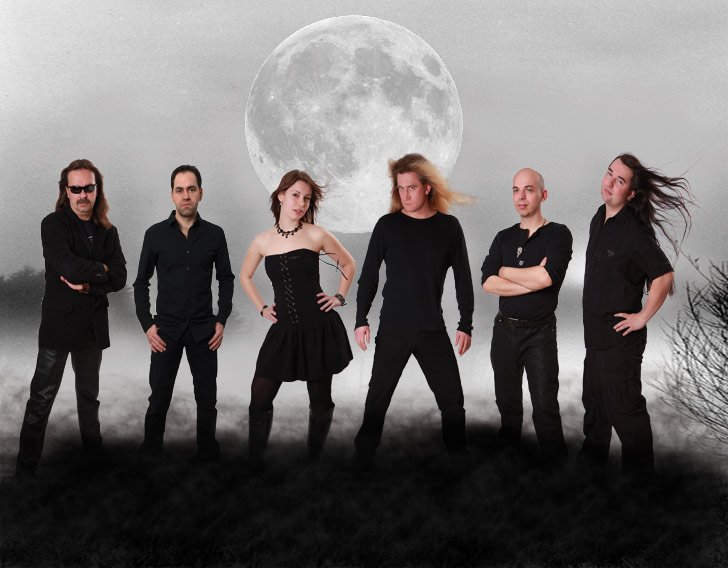|
Interview Andrew Roussak "To Impress Anybody With My Playing Was Never My Primary Aim" (April 2010. Text Henri Strik, edited by Robert James Pashman., pictures provided by Andrew Roussak) Lately, I‘ve discovered a fantastic keyboard player from Russia while browsing the internet. You can hear his excellent playing on his first solo album No Trespassing. It reminded me of people like Keith Emerson and Rick Wakeman. However, on Dorian Opera’s debut album No Secrets, he shows that he can meld his classical influences with prog metal without any problems at all.
Is Andrew Roussak your real name or just an artist
name? Because Andrew does not sound very Russian to me.
What kind of music did you listen when you lived in
Russia and was it easy to get the Western orientated music?
At the age of seven you started to play piano. Was it
difficult to learn all the classical stuff as a child?
You graduated at the Ufa State College of Arts as a pianist. You never had any
plans to become a classical pianist? You also became a studio musician and a chief musical editor at the local broadcast station. Did you record for famous Russian artists in those days and can you mention some names if possible? My hometown is called Ufa - it is a big industrial city in the Urals region, some 1500 km from Moscow to the east. This fact was crucial, because if one wanted to make it really big in Russia at that time, then he had to move to Moscow or to St. Petersburg. I had many friends who went this way, and some had really managed it, and to work with the stars later. The constant clients of our studio in Ufa were mostly local bands and artists - almost all genres, pros as well as amateurs. I also had to record jingles and ads for the radio, to make compilations for thematic radio shows, etc. All in all, it was a creative time.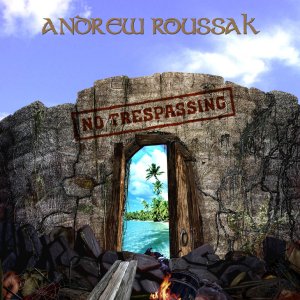
You recorded a solo album 'No Trespassing' in Germany later on. But I believe that the origin of this release was when you still lived in Russia. Right? Yes, some pieces like Vivace Furioso were already there for years, but generally I could not seriously think of recording and releasing a complete prog studio album in Russia in the late 90’s, because prog rock was not somewhat popular there. Recording as such was still supposable, but then you had to come out with your album somehow. Almost nobody had used Internet privately that time, so one could just not even think of something like a worldwide online promotion, digital distribution etc.What made you decide to move to Germany at the time? Well, there were some family and private reasons for it...Looking back and summarising everything that has happened in the last few years to me here, I think it was a correct decision-though you always leave something behind, of course.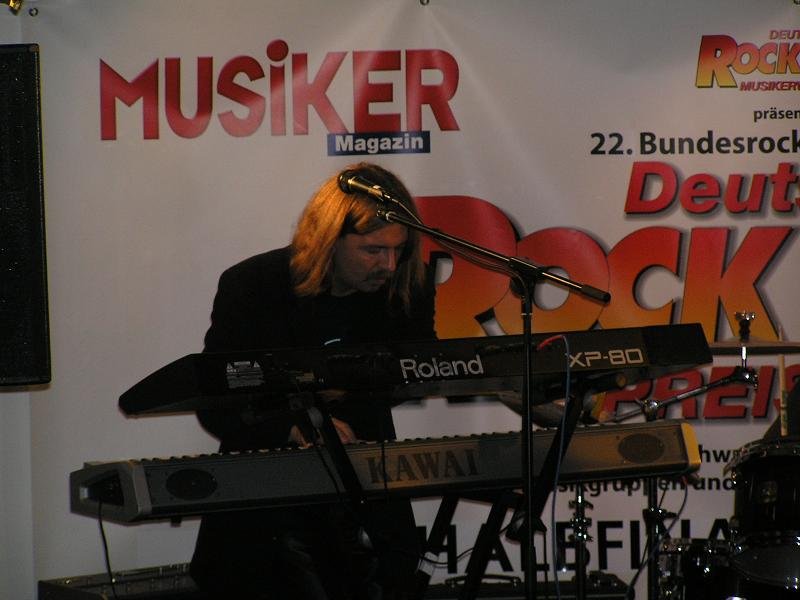
Did you find work right from the start when you lived in Germany? My daily, reliable and easy bread are piano and keyboard lessons, and I had first to learn German from literally zero just to be able to begin with them. Also a certain time was required to gain a free-lancer status in Germany. But, I had almost at once found a cover band with a gig schedule, and I also could play piano on the candle-light dinners in two restaurants on a more or less regular basis, and even to give some private piano concerts. So, the beginning was of course not very easy, but for sure not as difficult as for many others in the same situation.After a while you met a guitarist Oliver Weislogel, and together you grounded the prog metal band Dorian Opera. Can you tell me how this happened? Yes, in 2005 Oliver had invited me to join a cover band he was leading-it was called Black Forest Project. Joe Eisenburger was another professional musician whom he invited. After some while it became clear, that the music we wanted to play just did not fit in the frames of a cover band, and Oliver had already many musical ideas which had later found their way onto our first release. But then we needed an appropriate drummer. So, I had contacted a virtuoso drum player Harry Reischmann whom I knew from a blues band we had both played with in 2003. Harry just said “yes, of course!” And so Dorian Opera was finally born, that time as a quartet.The already mentioned solo album 'No Trespassing' was recorded before the first Dorian Opera album was released. Is that correct and why did you decide to record a solo effort? Yes, it's true. But actually your question should have sounded like - why so damn late, Andrew? (smiles) As mentioned earlier, some pieces on the album were composed already in Russia. But for a long time I still had thought of the whole adventure in the good old major-label-deal terms, because I had no idea about MySpace, CDbaby and generally of all possibilities the internet might give. Once I have discovered the opportunity to release and to promote my music myself, the idea of a complete solo album became to look attractive to me, and then it was pretty quickly done.Unfortunately I have to tell you that the production of 'No Trespassing' could have been done a lot better. But it’s all a matter of money and how large the recording budget was. Am I correct? Sure. I had no financial backing from any label at this stage, as well as no idea whether anybody, reviewers, fans, web radios etc, would have an interest in my music after all was done. On the other side, I was not satisfied with something like programmed drums or synth-guitars, so I was very grateful to all my guest musicians who had helped me along the way. I had also happened to win four studio days as a result of the German Pop and Rock Award as the best keyboard player of 2006, and I used this time for the drum recording sessions and for the mastering.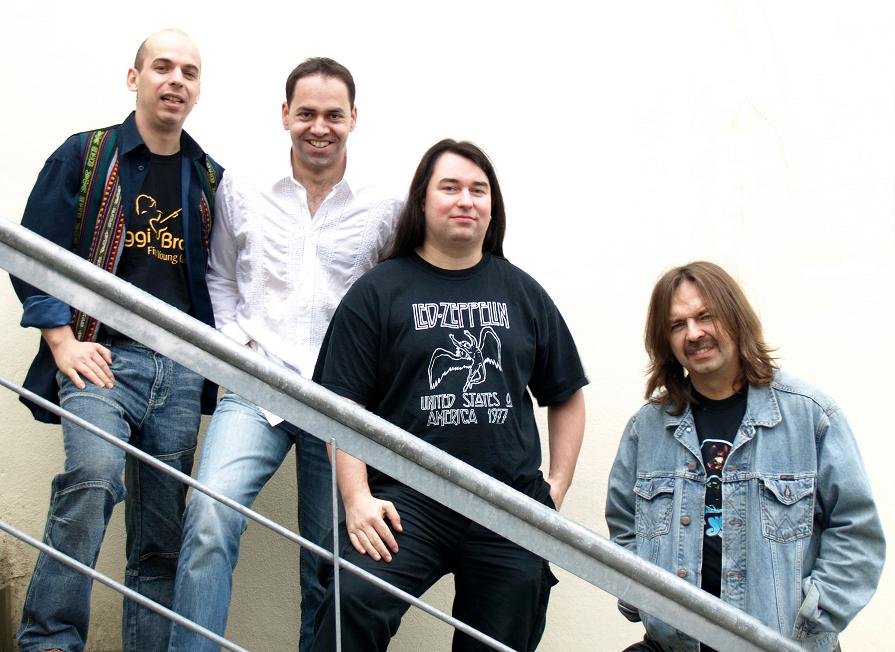
I believe that on this album all orchestral sounds
were made with your synthesizers. They sound very realistic, like a real
orchestra. Can you tell me what kind of keyboards you have used on the album? On this album I could hear that you are a classically trained musician. Most of all, the two pieces of J.S. Bach reveal those influences. Are you afraid that people might say: “Here is another classical trained wonder kid that tries to impress the outside world with his classical pieces” or “Don’t give me that classical bullshit”. Don’t get me wrong I loved it all the way but I know how people sometimes think. Hey, but then it seems that many people love it too, because I got the most of my points by reviewers exactly for these two renditions! I have always enjoyed baroque music, and the works of Bach in the first line, of course. It is a music of immense depth, and as you are working on your performance, you are actually exploring this depth, finding something that’s personally yours in it. It is amazing how different the same pieces sound in the performances of Richter, or Gould, or now of Martin Stadtfeld. I have tried to find something that is mine in these two pieces and the result had just happened, so to impress anybody was not the primary aim.Your solo album also reveals that you like not only classical music but also blues music. Most of all the track 'Do Without Me' has all those jazzy and blues influences. How is it that a lot of classical trained musicians such as Keith Emerson or Jon Lord still like to play that kind of music? I think that every musician has his own roots and history, and they influence the style, of course. I have played in a blues club in Ufa , from 1997 to 2001, two evenings a week, with the band and solo. That is...Otherwise, I was always thrilled by Emerson's boogie technique. His version of the Honky Tonk Train Blues and his Barrelhouse Shakedown are a challenge for any pianist - of course I have tried to learn something from his playing as well.It’s also strange that a lot of classical trained piano players end up playing in a prog metal band like yourself. Good examples are Vitalij Kuprij who plays in Artension and Michael Pinnella who plays in Symphony X. They also both released solo albums that reveal their background. Why is that do you think? I believe that prog and classical music come at times very close to each other. Prog - in its best examples - is no less sophisticated and technically very challenging. New Age is another good example. Tarkus of ELP performed on a grand piano works just like a contemporary classical piece you would expect to hear in a concert hall. And if you listen to Bach's Goldberg Variations performed on a Kurzweil 250 like Joel Spiegelman did, you would call it a new age. So, where exactly does the borderline lie? The immense choice of sounds today is another attraction, of course - all in all, it provides a nice option for some creative guys with the classical background to shift from one camp to another time after time (smiles).
On your solo album you have an excellent singer by the name of Henrik Plachtzik-he
reminded me of John Wetton a lot. He is also a very gifted drummer. Why did you
not use him for Dorian Opera? Instead bass player Joe Eisenburger had to do the
lead vocals-which he did rather strong I must admit.
Yes he did a great job! Can you explain the band name Dorian Opera? And Opera just points in a classical direction. We wanted herewith to stress both our classical and rock roots, so to speak.
Why did you include a classical piece from Vivaldi as a bonus track on the first Dorian Opera album 'No Secrets'? A piece which I loved very much! I believe the initial idea of making a classical remake as a kind of a "topping" for a CD came from me, because I was in a process of making recordings of two Bach's pieces for No Trespassing. Oliver had suggested he would try it with the Summer Storm ( L'Estate Presto ) of Vivaldi - and he had made his rendition and had performed it solo on the Frankfurt Music Fair, he works as an endorser for Siggi Braun Young Guitars. And his version sounded just stunning! All I had to do then was to add keyboard tracks to it. Performing this piece live with the band is huge fun.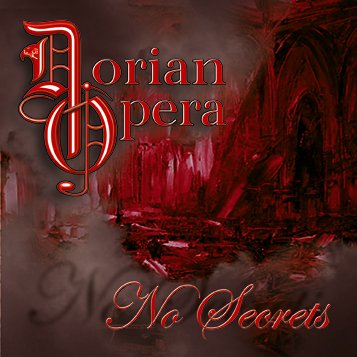
What was your set-up for the recording of this album?
Most tracks on 'No Secrets' were written by
Oliver. On four songs you contributed as a songwriter. Did you use most of your
songs for your solo album or what was the reason?
Why did Michael Brettner play a guitar solo on
'Dead Or Alive'?
The next album with the band will be called
'Crusade 1212'. It will probably be released later
this year. You managed to find two lead singers for this release. Can you tell
me more about them and tell us more about the theme of the album? For this release, we have managed to win two really fantastic vocalists. Sven the Axe is a front-man of a power metal band Solemnity, he has a vast experience in studio recordings and live performances. His singing on a CD-preview speaks for itself, I believe. Alexandra Goess is the new female voice of Dorian Opera and the band's youngest member. She has a classical vocalist’s training behind her, and she has done an amazing job in recording her tracks for the album in a pretty short time. I am sure that playing live with this new line-up will be an amazing experience, and I am waiting with anticipation for it.
Will it be released on the same Russian label or are
you looking for a new label? 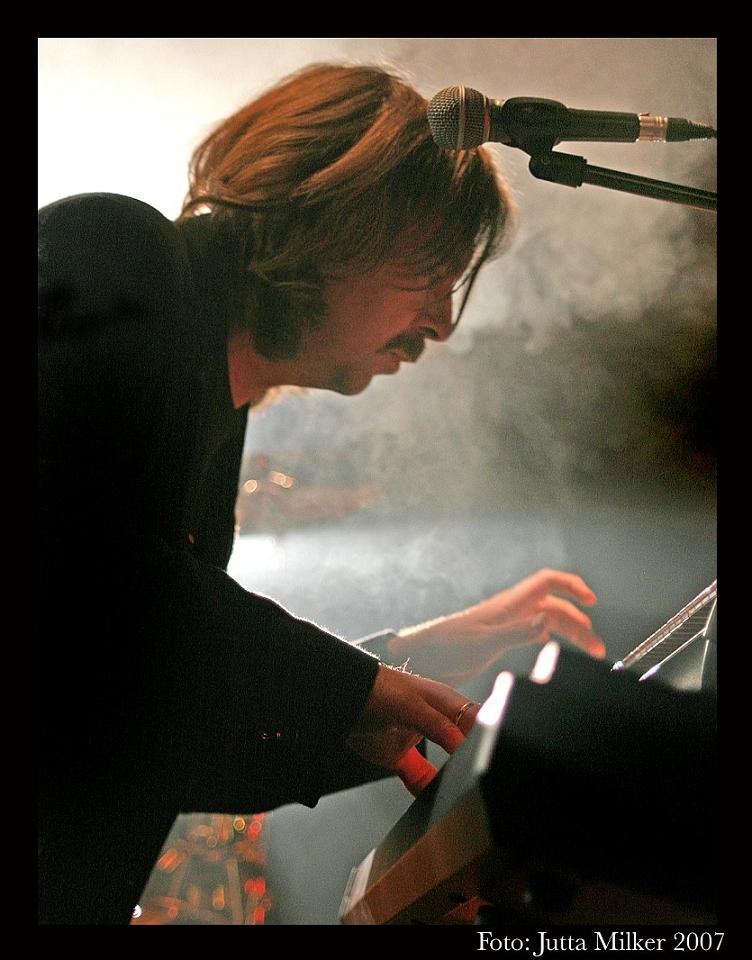
Your next plans as a solo artist are to record a solo
album with only pieces performed on the piano. Can we also expect an album made
with a real orchestra someday?
Can we expect another solo album in the near future
that contains mainly music inspired by your two keyboard heroes Rick Wakeman
and Keith Emerson? I would love that very much!
Any other future plans which I did not mention?
Can you name any websites for those who might like to
know more about Andrew Roussak and Dorian Opera? Andrew Roussak: Album review 'Blue Intermezzo' www.andrew-roussak.com www.myspace.com/andrewroussak www.cdbaby.com/cd/andrewroussak Dorian Opera: www.dorian-opera.de www.myspace.com/dorianopera www.cdbaby.com/cd/dorianopera
Andrew, thanks for answering my questions! Where to buy? |
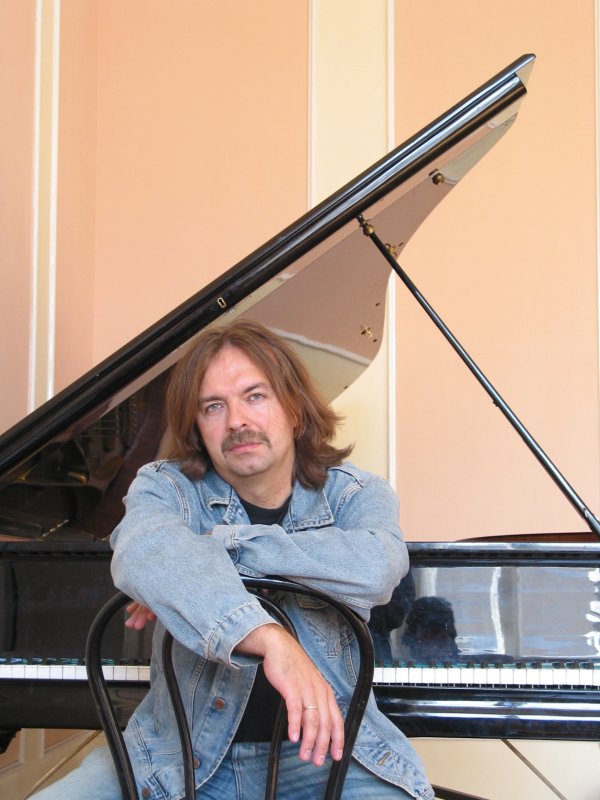 You were born in Russia and moved to Germany in 2001.
Does this mean that you also have witnessed the change in Russia yourself? How
do you look back at that period in your life and will you someday write some
music about your heritage?
You were born in Russia and moved to Germany in 2001.
Does this mean that you also have witnessed the change in Russia yourself? How
do you look back at that period in your life and will you someday write some
music about your heritage?